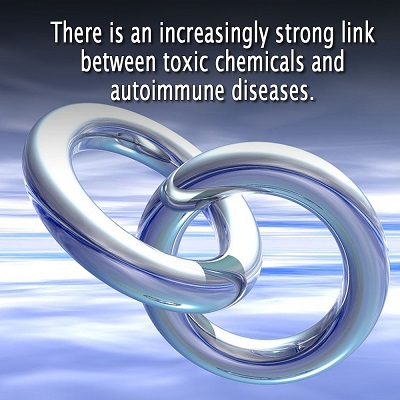 Our health can be considered a reflection of our environment. Everything that we take in from our surroundings can affect our overall well-being. One of the things we are constantly exposed to is toxins.
Our health can be considered a reflection of our environment. Everything that we take in from our surroundings can affect our overall well-being. One of the things we are constantly exposed to is toxins.
Toxic chemicals present in our environment make their way to our bodies through our food, water, air, and even products that we use in our daily activities. Over time, exposure to these chemicals may lead to health risks, especially when our bodies can no longer naturally eliminate these wastes, or protect us from them.
Health problems such as organ damage, weakened immune systems, and certain types of cancers have been linked to prolonged toxic exposure. However, there is now a growing body of research that also links autoimmune diseases with environmental chemicals.
What is the connection between environmental chemicals and autoimmune disorders?
Autoimmune Diseases
The immune system is our body’s natural defense against infections caused by viruses and bacteria. A healthy immune system can detect and destroy foreign bodies to prevent them from making us sick (or worsening our condition). However, the immune system of people with an autoimmune disease can not detect foreign cells from natural cells. As a result, the immune system releases autoantibodies that destroy healthy cells from either one specific organ or other parts of our body.
What causes autoimmunity is still unclear to scientists and health experts. However, factors such as genes, ethnicity, gender, age, and even occupation can play integral roles in increasing an individual’s risk of developing an autoimmune disease.
For example, data shows that women are more likely to be diagnosed with an autoimmune disease than men, especially during their childbearing years. There are some types of autoimmune diseases which are more common to some ethnicity than others. Certain types of autoimmune diseases tend to run in families, with some generations being more susceptible than others.
Some of the more common types of autoimmune diseases include type 1 diabetes, Hashimoto’s thyroiditis, psoriasis, multiple sclerosis, lupus, celiac disease, and inflammatory bowel disease.
Usual symptoms of autoimmune disease include chronic fatigue, muscle aches, swelling and redness, low-grade fever, numbness and tingling of hands and feet, and hair loss.
How Chemicals Can Cause Autoimmune Diseases
Scientists and health experts are now looking into the link between toxins and autoimmune diseases. Toxic overload happens when our body can no longer eliminate the toxins that we are exposed to. As a result, cell production is disrupted, making it challenging for our body to balance hormone production.
Hormonal imbalance is also closely linked to autoimmune diseases. One example is the hormone estrogen, which plays a vital role in the development of lupus and rheumatoid arthritis. Some toxins, such as BPA, behave like estrogen once inside the body, strengthening the case for toxins being a cause of autoimmunity.
Another study also found that of 4,000 patients diagnosed with Multiple Sclerosis, only five were free from mercury poisoning. A study done of workers at the post-9/11 World Trader Center site found a high incidence of different autoimmune diseases, with rheumatoid arthritis affecting 37% of the study’s participants. The workers were constantly exposed to silica dust, asbestos, dioxin, and lead – all construction materials used in building the Twin Towers.
In the United States, a study done on 300,000 death certificates across 26 states over 14 years revealed that pesticide exposure among farmworkers increased their risk of dying from an autoimmune disease, such as rheumatoid arthritis or lupus.
There is also evidence that a ‘Western Diet’, which consists of high-fat fast food, high-sugar, and highly processed foods contains chemicals that can increase the risk of developing an autoimmune disease.
Minimizing Toxic Exposure
Completely eliminating toxic exposure is all but impossible, especially in our highly industrialized world. However, we can still minimize our risk of being overloaded with toxins with lifestyle and diet modifications. We can start by making sure that the plastics we use are BPA-free.
Switching to organic personal care products free from harmful chemicals is another way to minimize toxin overload. There are also pesticide-free fresh produce options that can help minimize toxin exposure. Lastly, keeping ourselves properly hydrated – with water – can also lessen our risk of toxin overload.
While the case of toxins causing autoimmune diseases is still inconclusive, numerous studies have been done in the past about the different health problems associated with toxin overload. There is no denying that toxins can negatively affect our bodies in ways we might not even realize, and the link to autoimmunity seems ever stronger.






